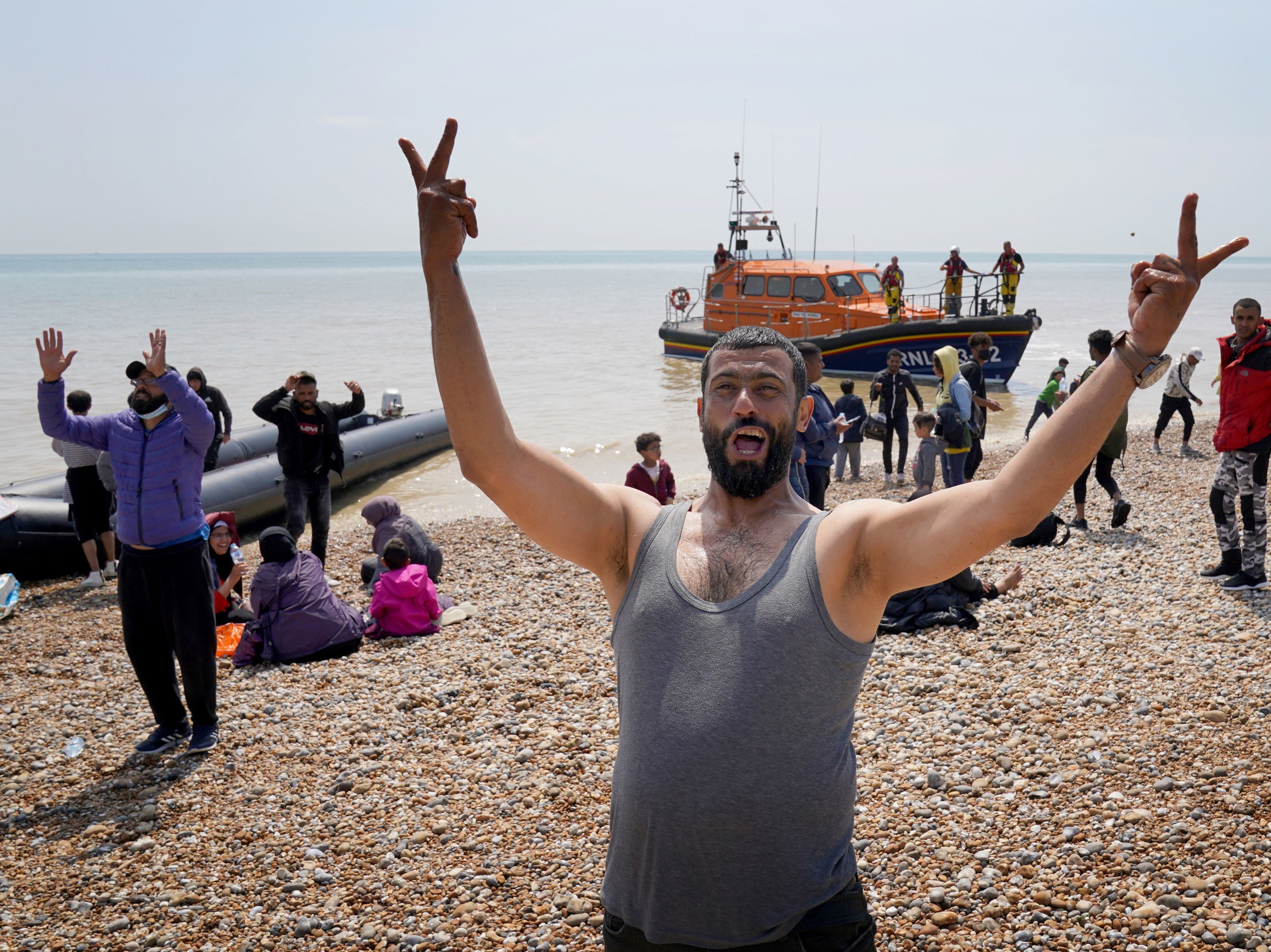We need a grown-up conversation about why migrants are crossing the Channel – not more incendiary rhetoric
Getting tougher on refugees and migrants won’t solve the ‘small boat’ crisis, says Salma Shah. But understanding why they risk their lives to get to UK shores might


In the good old days of immigration debate, the only thing one had to worry about was the numbers. The infamous net migration target, where the ambition to reach tens of thousands of migrants was never hit and after years of painful attempts to reach it, it was scrapped.
The ending of freedom of movement, it was hoped, would to some extent end the increasingly toxic debate around immigration. We no longer had cause to criticise the EU and its porous borders which so riled the hard right; we could now control exactly who came into the country. But with so little to complain about, where would all that toxic energy go?
Almost on cue, the populists it seems have found another “threat” to the border in the form of “small boats” or, as I have always seen them, floating coffins. Desperate people on the French coast have decided to risk life and limb to see if they can make a go of it in Britain.
Now, there are many legitimate arguments as to why it is wrong for people to attempt this crossing, it’s not just the danger of the journey but a question of what exactly they are fleeing from in France? It is a safe country from where people can claim asylum in the UK legitimately without taking a huge risk to their existence. So why, over the last few years, have we seen the increase in the numbers attempting to take this route?
Arguably the small boats issue has shown the UK’s success in immigration control. Unfortunately, the routes to get here illegally are far more dangerous and, as we’ve seen, criminal gangs are more than willing to exploit people’s vulnerabilities to further the growth of their enterprise.
Critics will also argue Border Force and RNLI have behaved like a “migrant taxi service”, but as RNLI chief Mark Dowie pointed out today, it is actually preventing unnecessary deaths. Those on the frontline are not to blame for the rise. Morally, how could they do anything other than protect life? Yes, they may act as a magnet, making people believe they are safer because of their presence, but who would take the risk of seeing bodies washed up on our shores? A very real outcome if we stood these vessels down.
We can’t ignore the political pressure that has turned this small, localised issue into a full-blown crisis costing the Home Office tens of millions of pounds just to incentivise the French to try harder to keep people there. But without the ties of the EU, does Paris really care about the impact on us? It will be shoved further and further down the priority list at the Elysee.
Indeed, in creating an unremitting focus on an issue that only a few years ago was barely a problem, it seems Nigel Farage and friends have created a huge advert pointing out the way in. It is a very clever political dividing line, creating a race to the bottom on tough immigration rhetoric, but does very little in the way of finding solutions or preventing more people from leaving one liberal western European nation for another.
Tragically, the reaction against anti-immigration sentiment, while well meaning, allows gangs to exploit people further. Those offering to assist people landing from small boats give a sense of hope, suggesting this is the right path to take, that all the answers lie across the Channel.
The issue of small boats is no longer a technical problem to be solved through better law enforcement and intelligence. It has morphed into a political question of who is going to be hardest on those making the journey. Surely we’ve learned by now that this isn’t the answer and we need a grown-up conversation about what motivates these crossings and how we’re actually going to tackle the challenge.



Join our commenting forum
Join thought-provoking conversations, follow other Independent readers and see their replies
Comments